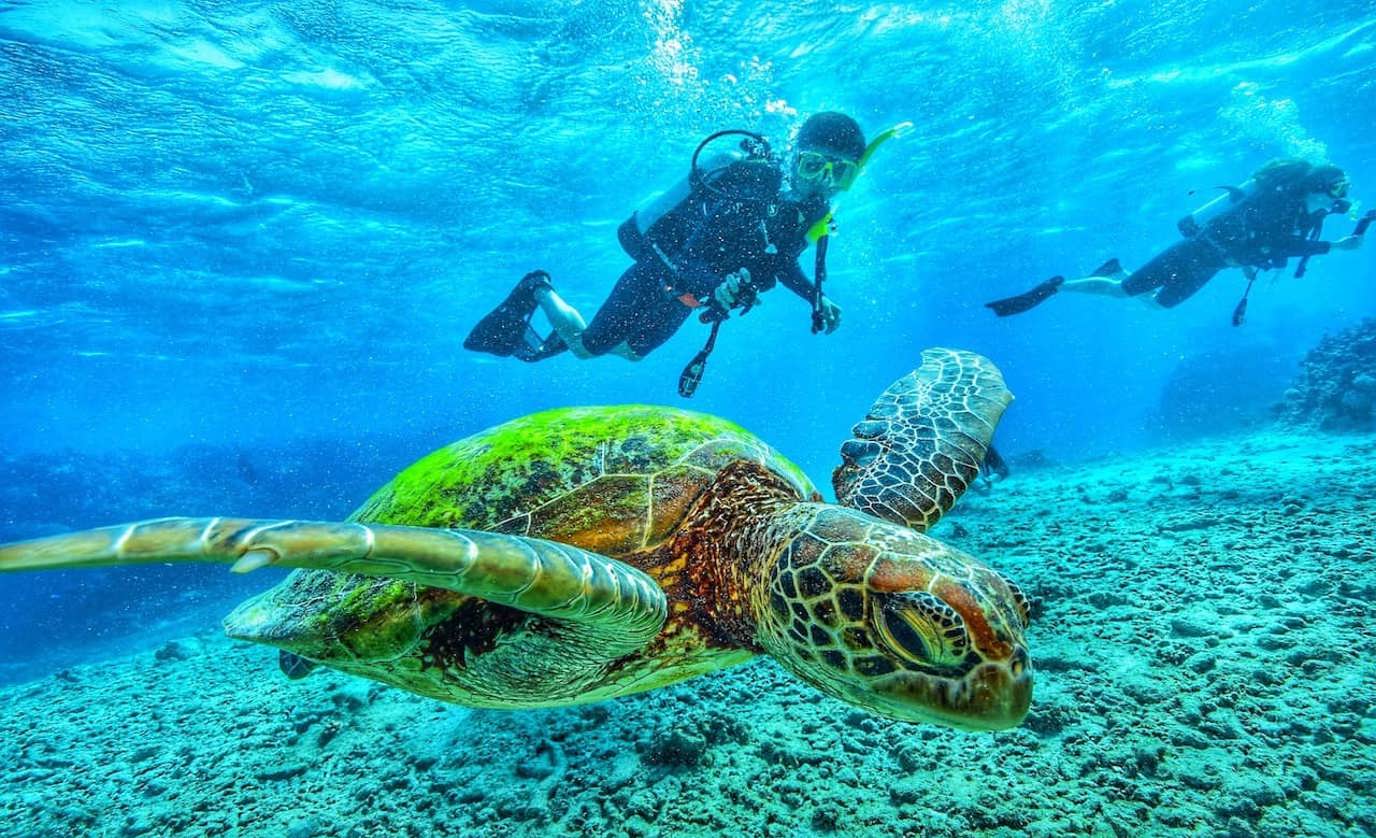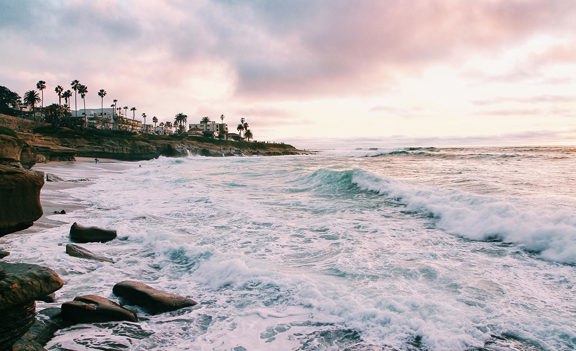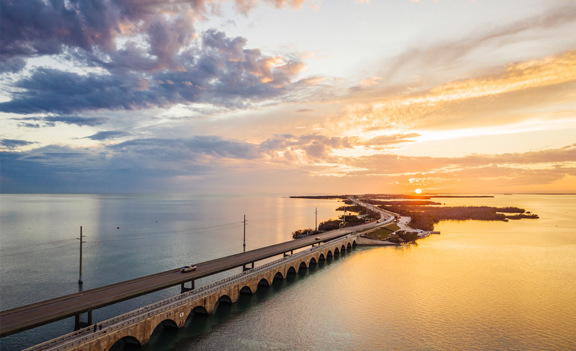
Impactful Life Lessons From Scuba Diving in the Florida Keys
The first time I traded walking barefoot on the beach for flipping my fins underwater, I was a little skeptical. But the foreign and colorful world just beneath the surface of the water nearly took my breath away. Having just discovered (for myself) an environment unlike any I’d ever seen, I knew I had to see more and go deeper.
For scuba, Florida Keys’ diving sites are some of the best available in the United States. From shallower dives exploring the United States’ only living coral reef to deeper dives exploring the iconic shipwrecks of the area, there’s something for divers of every level. The deep blue waters of the Florida Keys are warm year-round, though maybe not to native Floridians. The adventures awaiting underwater seem almost limitless, and so I keep coming back for more.
Before You Scuba in The Florida Keys
If you’ve never taken a dive, there are a few things to know before you go. An old adage goes, “plan your dive, dive your plan.” Safety is paramount –– often life or death –– when diving, so it is important to be prepared before the dive and to stick to the plan as much as possible. Here are some helpful tips to know for your scuba diving trip in the Florida Keys.
- Get Certified. Some resorts or companies will offer a beginner’s intro-to-scuba style course that will prepare you for a specific and easy level dive. This is not enough to just start diving anywhere you want. You need to be at least Open Water certified through an accredited program. Once you’re certified, you can then freely rent or buy scuba gear, book excursions, and trust you’re covered under travel insurance. Those 10 years old and older can get certified, so the whole family can dive together.
- Make Sure the Dive School is Certified. Not only do you need to be certified, make sure that the dive school or diving guide on an excursion is also certified. You want them to have a good reputation and well maintained scuba gear and boats. In the beginning, a good dive guide will be the key to a great trip. And they’re there to make sure you don’t get lost or worse.
- Check and double-check your equipment. Take the time to double-check that all of your equipment is working. You’ll learn how to do this when you get certified to dive, but you must do this every time. If you do not know your diving buddy in advance, get to know them a little too for safety. Then, be sure to check your buddy’s equipment. It’s imperative to make sure the safety inspection was thorough and nothing was missed so you can breathe easy underwater.
- Dive at your level. It can be tempting to want to go big right away. But an advanced level dive for a beginner or intermediate level diver can be dangerous or just dampen the trip for others on the dive. Start easy, and work your way up to the bigger, deeper dives. You can always get additional certifications to expand your diving ability safely and meticulously.
Life Lessons from Scuba Diving in The Florida Keys
Becoming a certified scuba diver taught me a lot more than just the mechanics of how to dive. Each time I take the plunge, I’m reminded anew of some key lessons that stick with me long after I dry off and return to land.
Remember to Breathe
Normal, even breaths are key. Even when the situation becomes a little stressful or something unexpected happens, whether in life or in the water, you have to remember to stay calm and breathe.
Many people find that their first instinct when underwater is to hold their breath a little. When you have an oxygen tank, well, you have to use it. Holding your breath underwater, especially as the pressure starts building the deeper you go, can potentially cause a fatal injury should an air bubble form inside you. Breathe in, breathe out, repeat.
Body Awareness
Watch the fins! The tank, the fins –– it all makes you bigger than you normally are. Just like when you’re in a car and you have to be aware of the whole vehicle, underwater you are responsible for everything you’re wearing. Don’t kick anyone, or anything.
Buoyancy will be the key to how successful you can be at diving. It’s fairly easy to learn how to control your breath to ascend or descend in the water, but it is very hard to master this skill. This important skill will help you exert less energy than swimming to make these minor adjustments. It’s all about being slow and controlled when underwater.
Know Your Limits
It’s worth saying again for safety, you must know your limits and stay within them. You cannot dive deeper than you are trained to dive, no matter what beauty lies just out of reach. No one, not even your buddy, knows your own limits the way you do. Underwater is not the place to be overconfident. Advocate for yourself and stick to what makes you feel truly confident.
Similarly, you’ll have to keep an eye on your oxygen tank levels at all times. A dive instructor or guide is there to remind you to check every so often, but it’s your air and you are responsible for it. Know when you reach half a tank and a quarter tank so you can ascend accordingly. Running out of air hopefully never will happen to you, but knowing your limits and staying aware will go a long way in preventing this major mishap.
Nature is Beautiful
Another thing I learned while scuba diving in the Florida Keys is that underwater habitats are stunning. Exploring a coral reef or becoming the hole in the center of a massive school of fish or just seeing the massive diversity of marine life never gets old. Scuba diving gives you an appreciation for the great blue oceans that cover 70% of our planet. The beauty of each dive is awe-inspiring and nearly indescribable to those who confine their lives to land.
One of the most important rules of diving is look, but don’t touch. In part, you want to stay safe from sharp corals or poisonous sea life. But, we are responsible for protecting these stunning environments as well. The sea is alive and as visitors, we should never touch, break, or remove anything. On land we take nothing but pictures and leave nothing but footsteps. Underwater, we still take the pictures, and we leave nothing but bubbles in our wake.
Road Tripping To Go Scuba Diving in The Florida Keys
The Florida Keys has so much to offer any diver that I recommend it without question. My favorite way to kick off a scuba trip in the Florida Keys is with a road trip down the Florida coastline.
South of Miami, as you start towards the Overseas Highway is littered with gorgeous campgrounds that make the perfect home for scuba enthusiasts who don’t want to stay at fancier resorts. With your own wheels, you are free to explore the area and the water exactly when and where you’d like. Go where the wind takes you!
Pack your fins and scuba suit into a Cruise America RV rental to hit the road in a comfortable and safe RV. Our RVs are extremely easy to drive and maneuver whether parking in a campground or snagging the last parking spot at a gorgeous beach. Make Cruise America your first choice for your next adventures by land and sea. Call or visit a location nearest you today to get started.





